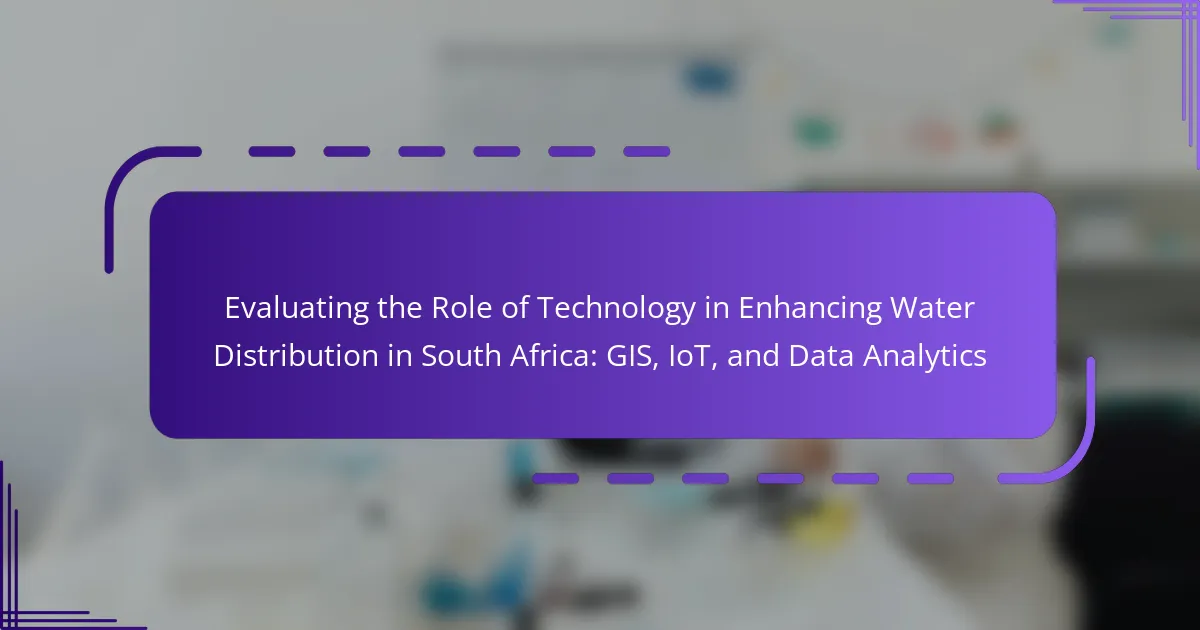The article evaluates the role of technology in enhancing water distribution in South Africa, focusing on Geographic Information Systems (GIS), the Internet of Things (IoT), and data analytics. It highlights how these technologies improve efficiency in water management through real-time monitoring, accurate mapping, and data-driven insights. GIS aids in identifying water supply and demand areas, […]
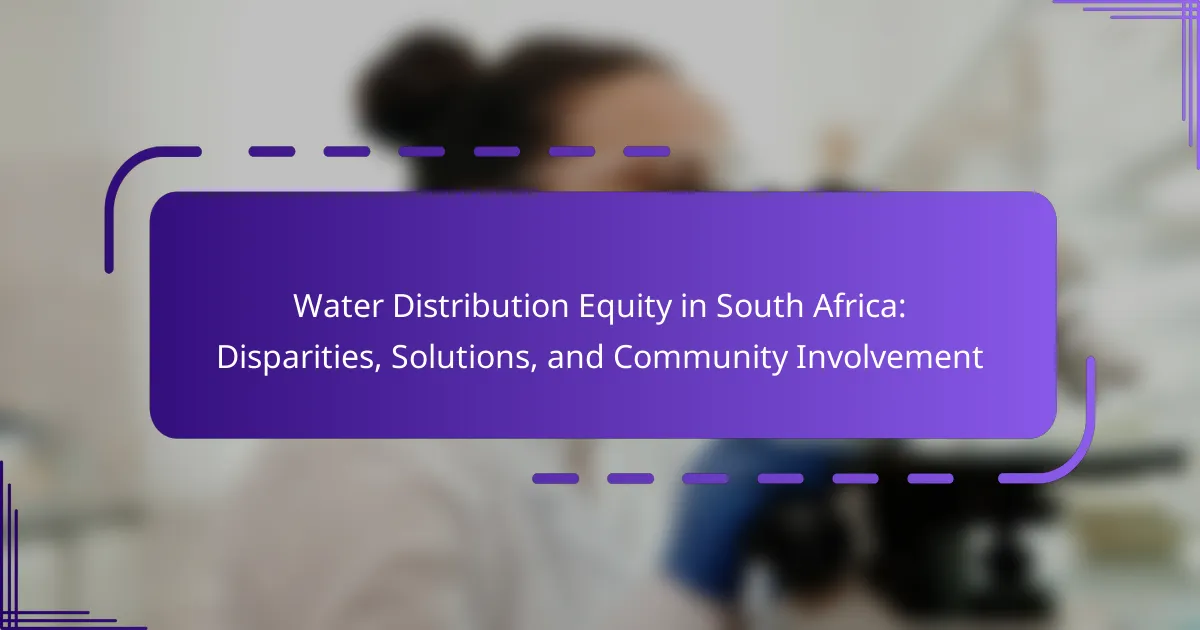
Water Distribution Equity in South Africa: Disparities, Solutions, and Community Involvement
Water Distribution Equity in South Africa focuses on the fair allocation of water resources to all communities, addressing historical disparities in access to clean water. Approximately 14% of households in the country lack basic water services, particularly in rural and underserved areas. The South African government recognizes water as a basic human right and is […]
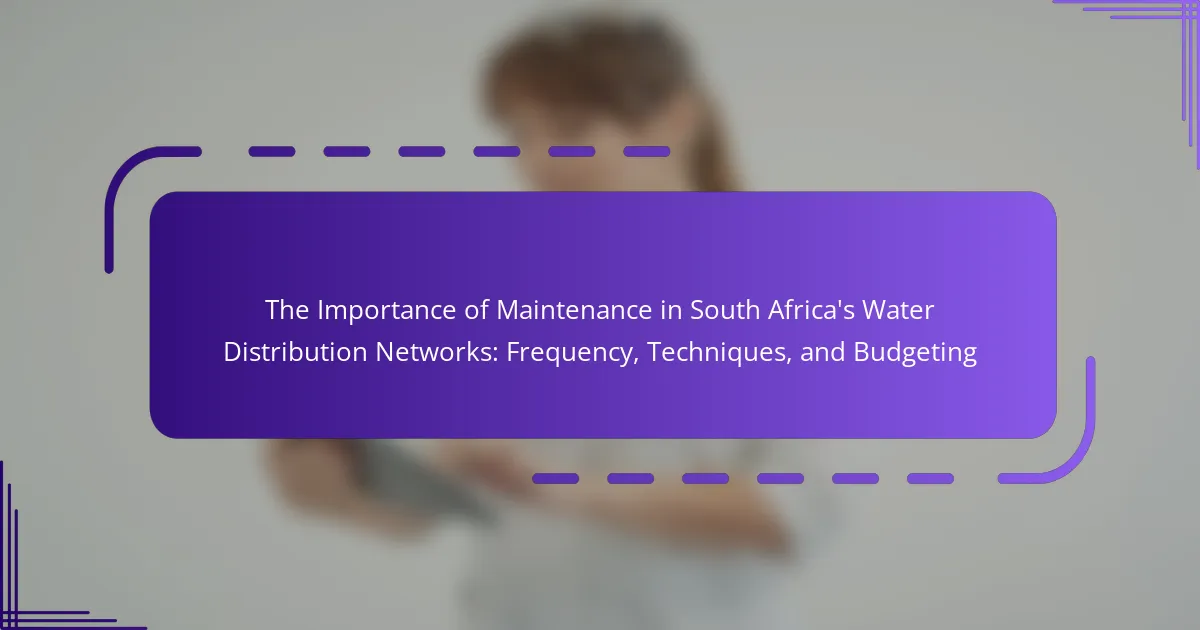
The Importance of Maintenance in South Africa’s Water Distribution Networks: Frequency, Techniques, and Budgeting
Maintenance in South Africa’s water distribution networks is essential for ensuring reliable access to clean water and preventing significant water loss due to leaks and pipe bursts. It is estimated that up to 40% of treated water is lost within the distribution system, highlighting the need for effective maintenance practices. Techniques such as leak detection, […]
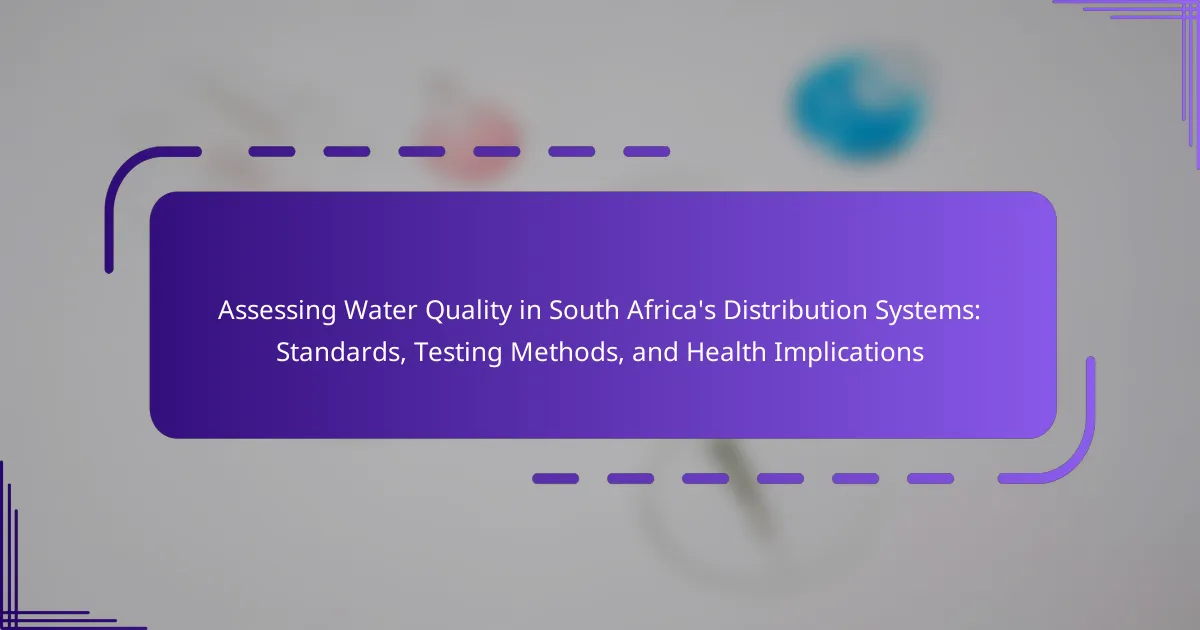
Assessing Water Quality in South Africa’s Distribution Systems: Standards, Testing Methods, and Health Implications
Water Quality Assessment in South Africa’s Distribution Systems involves the systematic evaluation of water quality to ensure it meets safety standards for human consumption. This process includes testing for chemical composition, microbial contamination, and physical characteristics, guided by the National Water Act and Drinking Water Quality Guidelines. Regular monitoring is essential to identify health risks […]
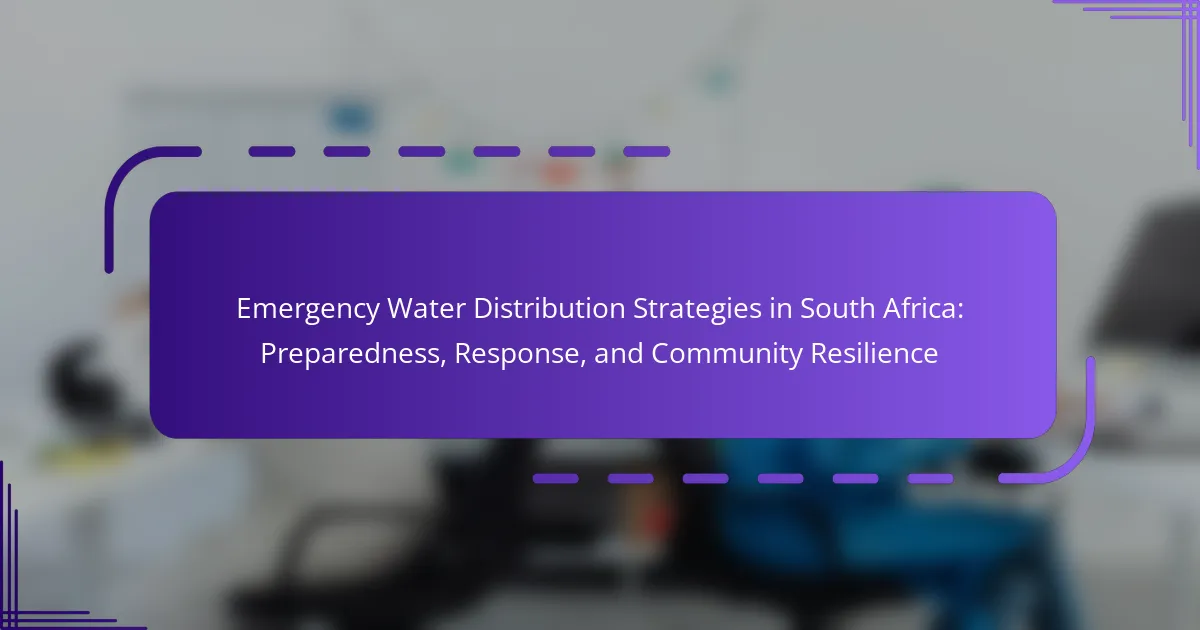
Emergency Water Distribution Strategies in South Africa: Preparedness, Response, and Community Resilience
Emergency water distribution strategies in South Africa are critical for addressing water shortages during crises, such as droughts or infrastructure failures. Key components of these strategies include the use of water tankers, community water points, and emergency supply systems, which are designed to ensure immediate access to potable water. The response framework emphasizes the assessment […]
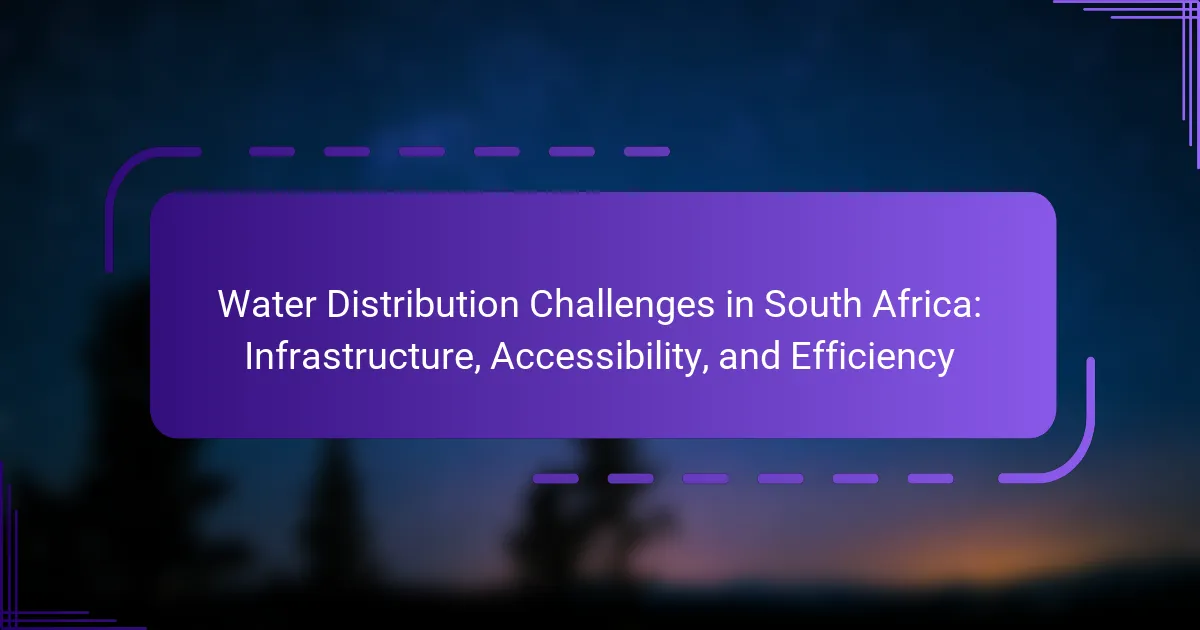
Water Distribution Challenges in South Africa: Infrastructure, Accessibility, and Efficiency
Water distribution challenges in South Africa encompass aging infrastructure, unequal access, and water scarcity. The aging infrastructure results in significant water loss, with up to 37% of supply wasted due to leaks. Many rural areas experience unequal access, leaving approximately 14% of South Africans without safe drinking water. Water scarcity is intensified by climate change […]
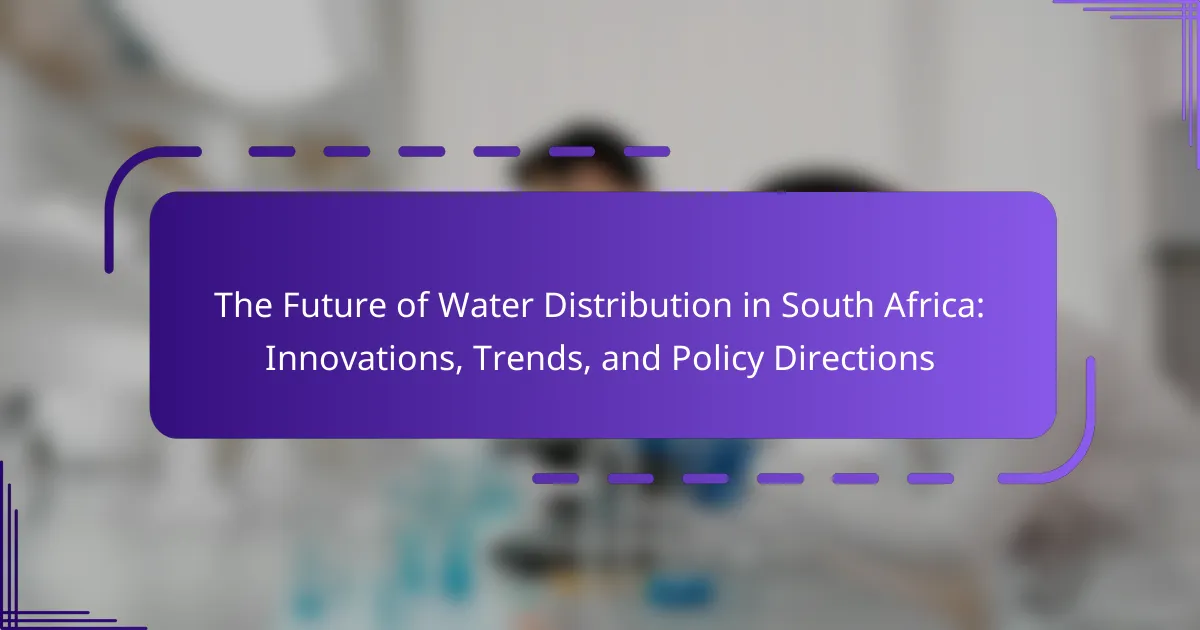
The Future of Water Distribution in South Africa: Innovations, Trends, and Policy Directions
The article focuses on the future of water distribution in South Africa, addressing critical challenges such as infrastructure deterioration, unequal access to clean water, and increasing water scarcity exacerbated by climate change. Key innovations discussed include smart water management systems, advanced metering infrastructure, and water recycling technologies, all aimed at enhancing efficiency and sustainability in […]
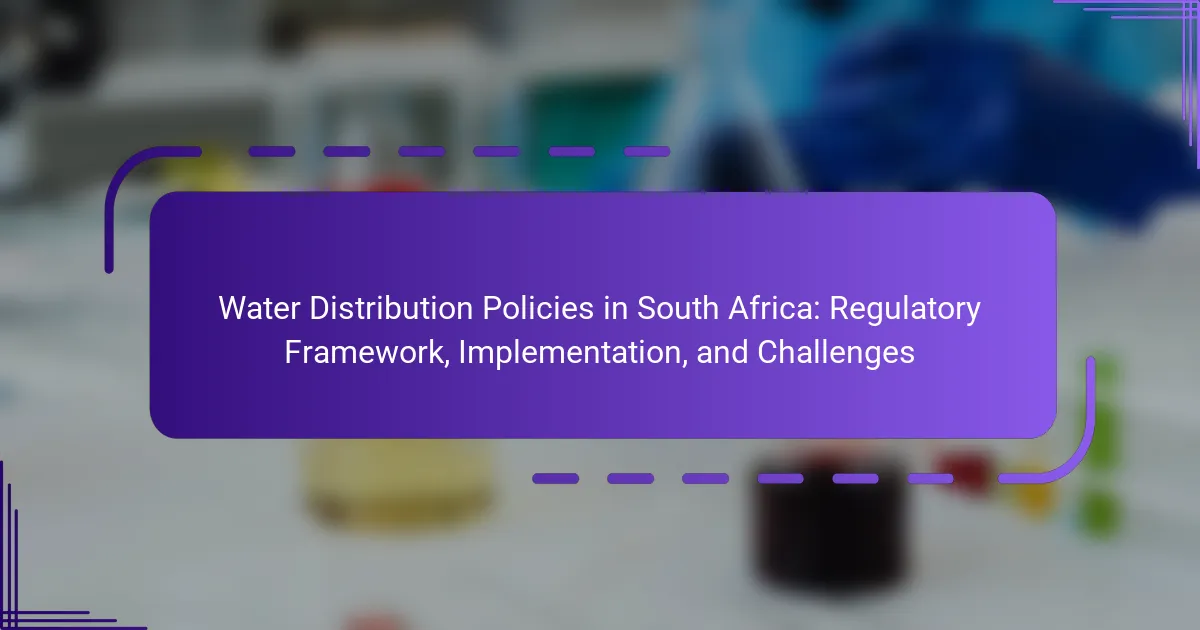
Water Distribution Policies in South Africa: Regulatory Framework, Implementation, and Challenges
Water Distribution Policies in South Africa encompass regulatory frameworks, institutional arrangements, and infrastructure development crucial for equitable access to water and sustainable resource management. The regulatory frameworks provide legal guidelines, while institutional arrangements clarify stakeholder roles, including government and private entities. Infrastructure development focuses on constructing and maintaining water supply systems, addressing challenges such as […]
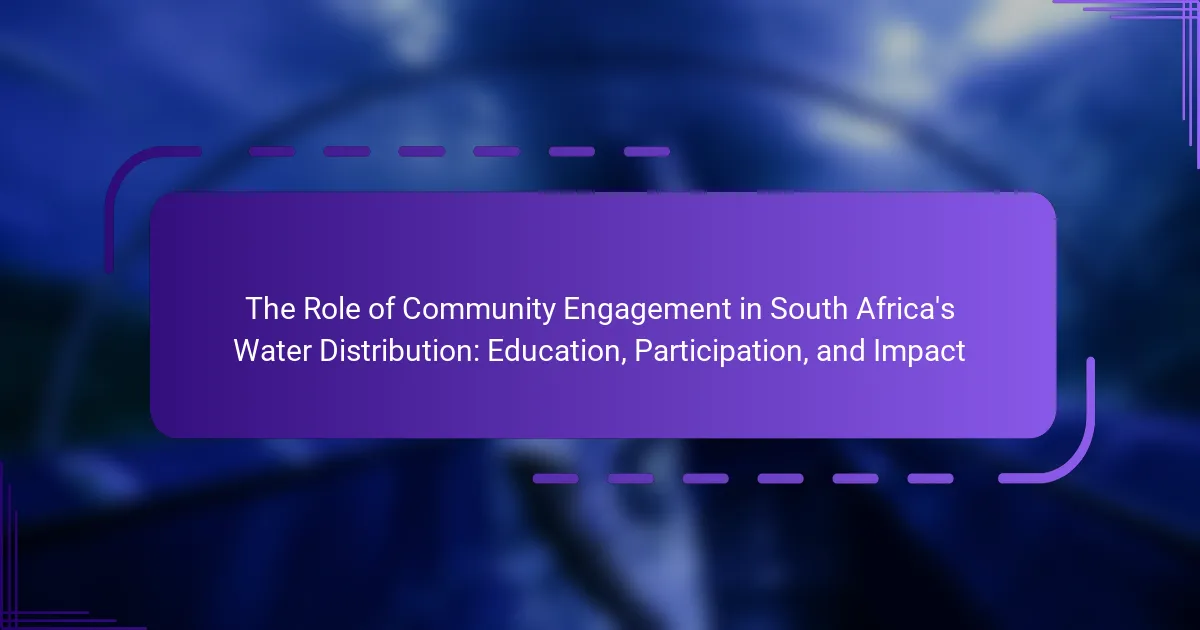
The Role of Community Engagement in South Africa’s Water Distribution: Education, Participation, and Impact
Community engagement is a vital component of water distribution in South Africa, facilitating collaboration between local communities and water authorities. This collaboration enhances transparency, accountability, and effectiveness in water management practices. Engaged communities can identify specific local needs, promote sustainable practices, and participate in decision-making processes, leading to improved water service delivery. Strategies such as […]
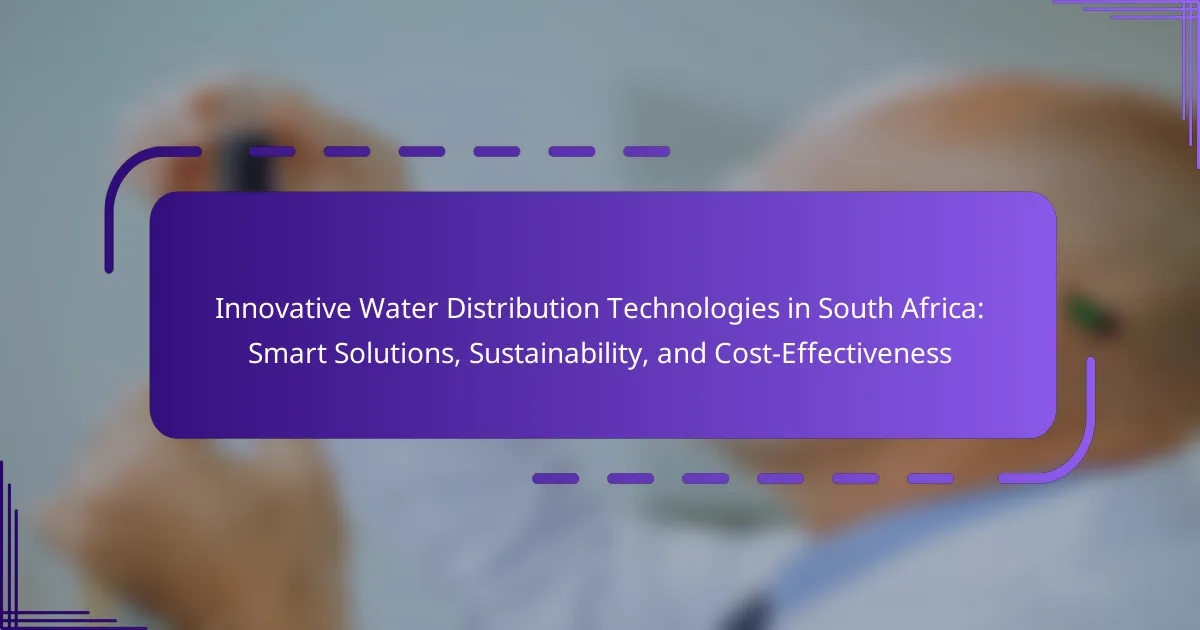
Innovative Water Distribution Technologies in South Africa: Smart Solutions, Sustainability, and Cost-Effectiveness
Innovative water distribution technologies in South Africa focus on smart meters, pressure management systems, and rainwater harvesting. These technologies enhance efficiency, reduce water loss, and promote sustainability in water management, addressing the critical issue of water scarcity affecting over 30% of the population. Smart solutions, including advanced metering infrastructure and automated leak detection, contribute to […]
